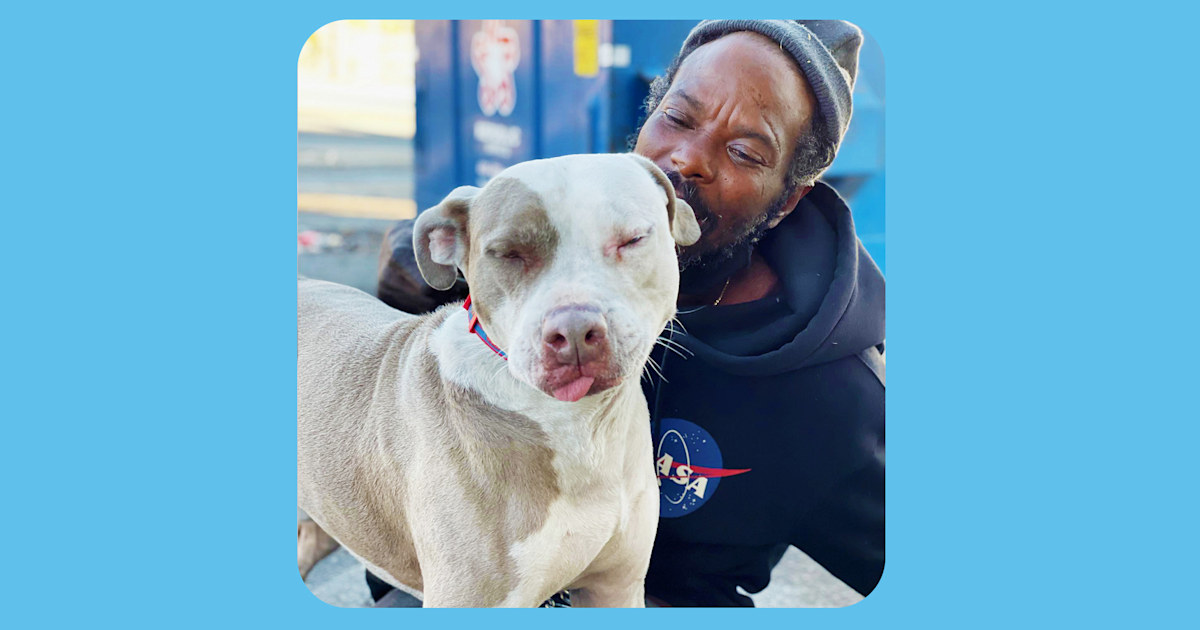Introduction

The issue of homelessness in pets is a growing concern that requires immediate attention and action. Every year, countless animals find themselves without a place to call home, facing a life of uncertainty and hardship. However, there is hope in the form of volunteering. Volunteering for homeless pets can make a significant difference in their lives and help address the underlying causes of pet homelessness. By dedicating their time, skills, and compassion, volunteers play a crucial role in providing care, finding loving homes, and advocating for these animals. Through their efforts, they contribute to improving the well-being of homeless pets and creating a more compassionate society. This article delves into the various ways volunteering can rescue hope for these animals in need.
The issue of homelessness in pets

The issue of homelessness in pets is a significant problem that affects countless animals worldwide. Every year, millions of dogs, cats, and other pets find themselves without a loving home or proper care. There are various reasons for pet homelessness, including owners surrendering their pets due to financial difficulties or personal circumstances. Additionally, stray animals also contribute to the growing population of homeless pets. This issue not only impacts the well-being of these animals but also poses challenges for society as a whole. Homeless pets often face health issues, hunger, and dangers on the streets. Moreover, overcrowded shelters struggle to provide adequate care and resources for all these animals in need. Addressing this issue requires collective efforts and a compassionate approach to ensure that every pet has a chance at a safe and loving home.
The importance of volunteering for homeless pets

Volunteering plays a crucial role in addressing the issue of homelessness in pets. By dedicating their time and effort, volunteers contribute to improving the lives of homeless animals and increasing their chances of finding permanent homes. The importance of volunteering for homeless pets cannot be overstated. Volunteers provide essential support to animal shelters and rescue organizations, helping with daily tasks, such as feeding, cleaning, and providing medical care. They also play a significant role in socializing and enriching the lives of homeless pets, which can greatly improve their chances of being adopted. Additionally, volunteers assist in organizing adoption events and engaging with the community through outreach programs, raising awareness about pet homelessness and encouraging responsible pet ownership. Their dedication and advocacy efforts also contribute to shaping policies that address the root causes of pet homelessness. The impact of volunteering on homeless pets' lives is profound, giving them a second chance at a loving home and a brighter future. By getting involved in volunteering, individuals can make a real difference in the lives of these vulnerable animals, providing them with hope and a chance for a better life.
Understanding the Problem

Understanding the Problem
To effectively address the issue of pet homelessness, it is crucial to understand its underlying causes and the impact it has on both animals and society. Pet homelessness can arise from various factors such as irresponsible pet ownership, lack of spaying and neutering programs, economic challenges faced by pet owners, and natural disasters. Additionally, the consequences of pet homelessness extend beyond the well-being of individual animals. Overcrowded shelters, increased euthanasia rates, and strain on resources are just a few examples of the negative effects on society.
By comprehending the root causes and consequences of pet homelessness, volunteers can better strategize and implement effective solutions. Through their efforts, they can help reduce the number of homeless pets and improve the overall welfare of these vulnerable animals. Volunteering plays a vital role in addressing this problem and providing hope for homeless pets.
The causes of pet homelessness

Pet homelessness is a pressing issue that stems from a variety of causes. Many pets end up without homes due to factors such as neglect, abandonment, and irresponsible breeding practices. Some owners may not prioritize their pets' well-being, leading to neglect and ultimately homelessness. Additionally, economic hardships can force individuals to give up their pets when they can no longer afford to care for them. Irresponsible breeding contributes to the overpopulation of pets, making it difficult for shelters and rescue organizations to find homes for all the animals in need. These causes create a cycle of pet homelessness that can have devastating effects on both the animals and society as a whole. It is crucial to address these root causes and work towards solutions to ensure that all pets have a safe and loving home.
The impact of pet homelessness on animals and society

Pet homelessness has a significant impact on both animals and society. Animals who are left without homes face numerous challenges, including exposure to harsh weather conditions, lack of proper nutrition, and increased vulnerability to diseases. They often suffer from physical injuries and emotional trauma due to their unstable living situations. This not only affects their overall well-being but also reduces their chances of finding a loving and permanent home.
On a societal level, the issue of pet homelessness places a burden on animal welfare organizations, shelters, and rescue groups. These organizations struggle to accommodate the growing numbers of homeless pets, leading to overcrowded facilities and limited resources. Additionally, the presence of stray animals can have negative consequences for communities, such as increased risks of disease transmission and potential safety hazards.
Addressing pet homelessness is crucial not only for the welfare of individual animals but also for creating safer and more compassionate communities. By volunteering and supporting initiatives that aim to reduce pet homelessness, individuals can contribute to a positive change in society while improving the lives of these vulnerable animals.
The Role of Volunteers
Volunteers play a crucial role in making a difference for homeless pets. Their dedication and compassion are invaluable in providing much-needed support and care. There are various ways in which volunteers can contribute to the cause.
Firstly, volunteers can assist with daily tasks at animal shelters. This includes feeding, cleaning, and providing medical attention to the animals. By lending a helping hand, volunteers alleviate the workload of shelter staff, ensuring that the pets receive the care they need.
Secondly, volunteers can provide socialization and enrichment for homeless pets. Spending time with these animals, playing, and offering affection helps them develop trust and increases their chances of finding a forever home.
Volunteering also benefits both the pets and the volunteers themselves. It provides an opportunity for personal growth, as volunteers develop empathy and learn about responsible pet ownership.
By actively participating in volunteering efforts, individuals contribute to the well-being of homeless pets and help create a more compassionate society. Their dedication and commitment make a significant impact on the lives of these animals, giving them hope for a better future.
The different ways volunteers can help homeless pets

Volunteers play a crucial role in helping homeless pets find care, comfort, and forever homes. There are several ways individuals can contribute their time and effort to make a difference in the lives of these animals. One way volunteers can help is by assisting with the daily tasks at animal shelters, such as cleaning cages, feeding, and grooming. They can also provide socialization and enrichment for the pets, ensuring they receive the love and attention they need. Additionally, volunteers can participate in fostering programs, offering temporary homes to pets until they find permanent families. Another way to help is by organizing adoption events and engaging in outreach programs to raise awareness about pet adoption. Furthermore, volunteers can educate the public on responsible pet ownership and advocate for policies that address pet homelessness. By volunteering in these various capacities, individuals can contribute to the well-being of homeless pets and make a lasting impact in their lives.
The benefits of volunteering for both pets and volunteers
Volunteering for homeless pets offers a multitude of benefits for both the animals and the volunteers themselves. For the pets, having dedicated volunteers means receiving the care, attention, and socialization they desperately need while waiting for their forever homes. Volunteers provide companionship, playtime, and exercise, which contribute to the overall well-being of the animals. This interaction helps them become more adoptable and increases their chances of finding loving families.
On the other hand, volunteering also brings numerous rewards for the individuals who dedicate their time and effort. Volunteering allows them to make a direct impact on the lives of vulnerable animals, giving them a sense of purpose and fulfillment. Additionally, working with homeless pets can be therapeutic and provide emotional support, promoting mental well-being. Volunteers often develop strong bonds with the animals they care for, experiencing the joy of seeing them find loving homes.
In conclusion, volunteering for homeless pets is a win-win situation. The animals benefit from the care and attention provided by dedicated volunteers, increasing their chances of finding forever homes. Simultaneously, volunteers experience personal satisfaction and emotional rewards from making a difference in the lives of these deserving animals. By getting involved in volunteering efforts, individuals can truly rescue hope for homeless pets.
Volunteering at Animal Shelters
Volunteering at animal shelters is a crucial role in addressing the issue of homelessness in pets. By dedicating their time and efforts, volunteers play a vital part in providing care and support for these vulnerable animals. At shelters, volunteers assist with various daily tasks, such as cleaning kennels, feeding and grooming the animals, and ensuring their overall well-being. In addition to these practical responsibilities, volunteers also provide essential socialization and enrichment for the homeless pets, helping them become more adoptable.
By volunteering at animal shelters, individuals not only contribute to the welfare of these animals but also experience personal rewards. The joy of seeing a once-homeless pet find a loving forever home is immeasurable. Volunteering at animal shelters offers a unique opportunity to make a tangible difference in the lives of homeless pets and inspires others to get involved in this noble cause.
Assisting with daily tasks at the shelter

Assisting with daily tasks at the shelter is a crucial role volunteers play in supporting homeless pets. From cleaning and feeding to grooming and exercising, volunteers help ensure that the animals are well-cared for during their stay at the shelter. They assist in maintaining a clean and healthy environment by cleaning cages, kennels, and communal areas. Feeding the pets and providing them with fresh water is also an important task that volunteers undertake. Additionally, volunteers help in grooming the pets, which includes brushing their fur and keeping them clean. Exercise and playtime are essential for the physical and mental well-being of the animals, and volunteers contribute by taking them for walks or engaging in interactive play sessions. By assisting with these daily tasks, volunteers contribute to creating a safe and comfortable environment for homeless pets, increasing their chances of finding forever homes.
Providing socialization and enrichment for homeless pets

Volunteering at animal shelters goes beyond just providing basic care for homeless pets. It also involves an important aspect of their well-being: socialization and enrichment. Homeless pets often come from difficult backgrounds, experiencing neglect or abuse, which can result in behavioral issues and a lack of trust in humans.
Volunteers play a crucial role in helping these animals overcome their past traumas and learn to trust again. They spend time with the pets, providing them with affection, attention, and positive interactions. This helps them feel loved and valued, boosting their self-esteem and increasing their chances of finding a forever home.
Additionally, volunteers engage in activities that stimulate the pets' minds and bodies. They organize playtime sessions, teach basic commands, and offer puzzle toys to keep the animals mentally engaged and prevent boredom. These activities not only provide entertainment but also improve the pets' overall well-being.
By providing socialization and enrichment, volunteers contribute to the rehabilitation of homeless pets, making them more adoptable and increasing their chances of finding loving homes. Their dedication and commitment have a direct impact on improving the lives of these animals, giving them the opportunity for a fresh start filled with love and companionship.
Fostering Programs
Fostering programs play a crucial role in addressing the issue of pet homelessness. These programs provide temporary homes for homeless pets, allowing them to receive care and love until they find their forever homes. Fostering not only helps to alleviate overcrowding in shelters but also allows pets to experience a home environment, which can greatly improve their well-being and chances of adoption.
Becoming a foster parent involves providing basic care, such as feeding and grooming, as well as socializing and training the pet. It requires a commitment to ensuring the animal's physical and emotional needs are met. Fostering programs often provide support and resources to foster parents to ensure they have the necessary knowledge and tools to care for the pets.
By opening their homes to homeless pets, foster parents play a vital role in preparing these animals for adoption. They provide valuable insights into the pet's behavior, personality, and any special needs, which helps potential adopters make informed decisions. Fostering programs not only save lives but also create a positive ripple effect, as each successful adoption opens up space for another homeless pet to be rescued.
In conclusion, fostering programs are an essential component of the efforts to address pet homelessness. They provide a lifeline for homeless pets, offering them temporary care and love while increasing their chances of finding permanent homes. By participating in fostering programs, individuals can make a direct impact on the lives of these animals and contribute to the overall goal of reducing pet homelessness.
The importance of foster homes for homeless pets
Foster homes play a crucial role in addressing the issue of pet homelessness. These temporary homes provide a safe and nurturing environment for homeless pets while they await their forever homes. The importance of foster homes for homeless pets cannot be overstated. They offer a respite from the stressful shelter environment, allowing pets to experience love, care, and socialization.
Foster homes also help alleviate overcrowding in shelters, making space for more animals in need. They provide valuable insights into the pet's behavior and personality, which can aid in finding the perfect match for adoption. Foster parents also have the opportunity to assess the pet's needs and work on any behavioral issues, increasing their chances of successful adoption.
By opening their hearts and homes to homeless pets, foster parents are making a significant difference in their lives. They are giving these animals a second chance at happiness and ultimately contributing to reducing pet homelessness.
Becoming a foster parent and the responsibilities involved

Becoming a foster parent for homeless pets is a rewarding experience that requires dedication and responsibility. When deciding to become a foster parent, individuals should first contact their local animal shelter or rescue organization to inquire about their foster program. They will typically be required to fill out an application and undergo a screening process to ensure they are a suitable candidate.
Once approved, foster parents have the responsibility of providing a safe and loving environment for the pet in their care. This includes providing food, water, shelter, and any necessary medical care. Foster parents may also need to administer medications, attend veterinary appointments, and help with training or socialization.
It is important for foster parents to understand that their role is temporary, as the ultimate goal is to find a permanent home for the pet. This means being prepared for potential emotional attachment and being willing to let go when the time comes.
By becoming a foster parent, individuals play a crucial role in helping homeless pets find their forever homes. They provide a nurturing environment where pets can heal, learn, and thrive until they are ready for adoption. It is a responsibility that requires commitment, compassion, and a genuine love for animals.
Adoption Events and Outreach

Adoption events and outreach programs play a crucial role in finding forever homes for homeless pets. These initiatives aim to connect potential adopters with the animals in need. Adoption events are organized to showcase the available pets and give them an opportunity to meet potential families. These events often take place in public spaces or pet supply stores, attracting a wide range of individuals who may be interested in adopting. Outreach programs, on the other hand, involve engaging with the community through educational campaigns, social media promotion, and collaborations with local businesses. These efforts help raise awareness about pet homelessness and encourage people to consider adoption as a compassionate choice. By organizing adoption events and implementing outreach programs, volunteers can make a significant difference in the lives of homeless pets.
Organizing adoption events to find homes for pets
Organizing adoption events is a crucial step in finding homes for homeless pets. These events provide an opportunity for potential adopters to meet a variety of pets in need of loving families. The organizers of these events work tirelessly to ensure that the pets are showcased in the best possible light.
During these events, shelters and rescue organizations set up booths and create a welcoming atmosphere where people can interact with the animals. They showcase the pets' unique qualities and provide information about their backgrounds and personalities. Adoption counselors are also available to answer questions and guide potential adopters through the process.
These events often include activities such as pet parades, pet training demonstrations, and even contests. By making the event fun and engaging, organizers hope to attract a larger crowd and increase the chances of finding suitable homes for the pets.
Additionally, adoption events serve as an opportunity for community engagement. Local businesses, sponsors, and volunteers come together to support the cause and raise awareness about pet homelessness. This collaboration strengthens the bond between the community and animal rescue organizations.
Overall, organizing adoption events plays a pivotal role in connecting homeless pets with loving families. It provides a platform for showcasing their personalities and increasing their chances of finding forever homes. Through these events, countless animals have been given a second chance at happiness and a loving family to call their own.
Engaging the community through outreach programs
Engaging the community through outreach programs is a crucial aspect of addressing the issue of pet homelessness. These programs aim to raise awareness about the plight of homeless pets and encourage community members to take action. Through various initiatives such as workshops, seminars, and awareness campaigns, volunteers can educate the public about responsible pet ownership and the importance of adoption.
One effective way to engage the community is by organizing adoption events in collaboration with local animal shelters and rescue organizations. These events provide an opportunity for potential adopters to meet homeless pets and learn about their stories. Additionally, outreach programs can involve collaborating with schools, community centers, and other organizations to spread the message about pet homelessness.
By actively engaging the community, volunteers can create a network of support that helps address the issue at its core. Through education and advocacy, they can inspire individuals to make informed decisions regarding pet ownership and encourage them to adopt rather than buy from breeders or pet stores. These outreach programs not only benefit homeless pets by increasing their chances of finding forever homes but also foster a sense of compassion and empathy within the community.
In conclusion, engaging the community through outreach programs plays a vital role in combating pet homelessness. By raising awareness, providing educational resources, and promoting responsible pet ownership, volunteers can create a lasting impact on both the lives of homeless pets and the community as a whole. Together, we can make a difference and give these animals the love and care they deserve.
Education and Advocacy
Education and Advocacy play a crucial role in addressing the issue of pet homelessness. By educating the public on responsible pet ownership, volunteers can help prevent pets from ending up on the streets or in shelters. They can provide information on the importance of spaying and neutering, proper training, and regular veterinary care. Through outreach programs, they can engage with the community, raising awareness about the plight of homeless pets and promoting adoption. Additionally, volunteers can advocate for policies that address pet homelessness, such as increased funding for spay/neuter programs and stricter regulations on breeding. By actively participating in education and advocacy efforts, volunteers can help create a more compassionate society that prioritizes the welfare of homeless pets.
Educating the public on responsible pet ownership

Educating the public on responsible pet ownership is a crucial aspect of addressing the issue of pet homelessness. By providing information and resources, volunteers play a vital role in promoting responsible pet ownership within their communities. They help individuals understand the importance of spaying and neutering their pets to prevent overpopulation, as well as the significance of regular veterinary care, proper nutrition, and exercise.
Volunteers can organize workshops, seminars, and educational campaigns to raise awareness about responsible pet ownership. They can distribute brochures and pamphlets that highlight the responsibilities and commitments involved in owning a pet. Additionally, volunteers can collaborate with schools and community centers to incorporate pet care education into curriculums and activities.
By educating the public on responsible pet ownership, volunteers empower individuals to make informed decisions when it comes to adopting or caring for a pet. This knowledge helps reduce the number of pets that end up homeless and ensures that pets are provided with loving and responsible homes.
Advocating for policies that address pet homelessness
Advocating for policies that address pet homelessness is a crucial aspect of volunteering efforts. By actively engaging in advocacy, volunteers can help bring attention to the issue and push for necessary changes. This involves working with lawmakers and organizations to develop and implement effective policies that aim to prevent and reduce pet homelessness.
Advocacy efforts may include pushing for stricter regulations on breeding and pet sales, promoting spay/neuter programs, and supporting initiatives that provide affordable veterinary care for low-income individuals. Volunteers can also collaborate with local government officials to establish community-based programs that offer resources and support to pet owners in need.
By advocating for policies that address pet homelessness, volunteers play a vital role in creating long-term solutions to this pressing issue. Their dedication and commitment can lead to substantial improvements in the lives of homeless pets and ensure a brighter future for them.
Success Stories and Impact

Success Stories and Impact
Through volunteering efforts, many homeless pets have found their forever homes and experienced life-changing transformations. These success stories are a testament to the impact that volunteering can have on these animals' lives.
One heartwarming story involves a dog named Max, who was found abandoned and malnourished. With the dedication of volunteers at the local animal shelter, Max received proper care and rehabilitation. Eventually, a loving family adopted him, providing him with a safe and nurturing environment.
Volunteering not only changes the lives of individual pets like Max but also has a broader impact on society. By finding homes for homeless animals, volunteers alleviate the strain on overcrowded shelters and reduce the euthanasia rates. Moreover, their efforts raise awareness about responsible pet ownership and contribute to creating a more compassionate community.
The impact of volunteering is immeasurable, as it saves lives, brings joy to families, and creates a brighter future for homeless pets. By sharing success stories and highlighting the positive effects of volunteering, we hope to inspire others to join the cause and make a difference in the lives of these deserving animals.
Encouraging others to get involved in making a difference
Stories of rescued pets finding forever homes

Stories of rescued pets finding forever homes are a heartwarming testament to the power of volunteering. These stories showcase the incredible impact that volunteers can have on the lives of homeless pets. One such story is that of Max, a senior dog who spent years in a shelter before finding his forever home. With the help of dedicated volunteers, Max received much-needed medical care and socialization, which transformed him into a happy and healthy companion. Another inspiring tale involves Luna, a stray kitten who was rescued from the streets and placed in a foster home. Through the love and care provided by her foster family, Luna blossomed into a playful and affectionate cat, eventually finding her forever family. These stories highlight the transformative power of volunteering and demonstrate how it can change the lives of homeless pets for the better.
The positive impact of volunteering on homeless pets' lives
Volunteering has a profound and positive impact on the lives of homeless pets. When volunteers dedicate their time and effort to helping these animals, they provide them with much-needed love, care, and attention. By spending quality time with homeless pets, volunteers offer companionship and alleviate their loneliness. This social interaction contributes to the emotional well-being of the animals, improving their overall happiness and reducing stress.
Moreover, volunteers play a crucial role in ensuring the physical health of homeless pets. They assist in providing proper nutrition, exercise, and grooming, which are essential for their well-being. Volunteers also help monitor the animals' health by observing any changes in behavior or appearance and alerting the shelter staff when necessary.
Furthermore, volunteers contribute to the rehabilitation of homeless pets. Through training sessions, they help these animals develop essential skills such as obedience and socialization, making them more adaptable and increasing their chances of finding forever homes.
The positive impact of volunteering extends beyond individual animals. By dedicating their time to homeless pets, volunteers support animal shelters and rescue organizations in their mission to save lives. Their efforts contribute to the overall success of these organizations in finding loving homes for these vulnerable creatures.
In conclusion, volunteering has a significant positive impact on the lives of homeless pets. Through their dedication and compassion, volunteers improve the emotional well-being, physical health, and chances of adoption for these animals. Their selfless actions not only benefit individual pets but also contribute to the larger goal of creating a world where no pet is left without a loving home. By getting involved in volunteering, individuals can make a real difference in the lives of these deserving creatures.
Conclusion

In conclusion, volunteering plays a crucial role in addressing the issue of pet homelessness. By understanding the causes and impact of this problem, individuals can make a difference in the lives of homeless pets. The role of volunteers is multifaceted, as they contribute to animal shelters by assisting with daily tasks, providing socialization and enrichment, and participating in fostering programs. Additionally, volunteers organize adoption events and engage in outreach programs to find permanent homes for these animals. Education and advocacy are also essential components, as volunteers educate the public on responsible pet ownership and advocate for policies that address pet homelessness. Through their efforts, volunteers have witnessed the transformation of countless lives, both human and animal. By encouraging others to get involved, we can create a future where no pet is left without a loving home.
The rewards of volunteering for homeless pets
Volunteering for homeless pets is a deeply rewarding experience that brings immense joy and fulfillment. By dedicating their time and effort, volunteers have the opportunity to make a positive impact on the lives of these animals in need. The rewards of volunteering for homeless pets are plentiful.
Firstly, volunteers witness firsthand the transformation of these pets from vulnerable and neglected to loved and cared for. They play a crucial role in providing comfort, companionship, and support to these animals, helping them regain their trust in humans.
Secondly, volunteers develop a strong bond with the pets they work with. Through daily interactions, they form a special connection that brings immeasurable happiness and a sense of purpose.
Thirdly, volunteering for homeless pets allows individuals to contribute to a greater cause. Knowing that their efforts directly contribute to finding forever homes for these animals brings a profound sense of accomplishment.
Lastly, volunteering offers personal growth and learning opportunities. It allows individuals to develop empathy, patience, and compassion while learning about responsible pet ownership.
In conclusion, the rewards of volunteering for homeless pets are not only felt by the animals but also by the volunteers themselves. It is an experience that brings joy, fulfillment, and a profound sense of making a difference in the lives of these deserving creatures. So why wait? Join the movement today and start rescuing hope for homeless pets!
Encouraging others to get involved in making a difference

Encouraging others to get involved in making a difference is crucial in addressing the issue of homeless pets. By spreading awareness about the problem and highlighting the impact of volunteering, individuals can inspire others to take action. Sharing success stories and showcasing the positive outcomes of volunteering can be a powerful tool in motivating others to get involved. Additionally, organizing community events and outreach programs can create opportunities for people to learn more about the issue and find ways to contribute. By emphasizing the rewarding experiences and personal fulfillment that come from helping homeless pets, more individuals can be motivated to lend a helping hand. Together, we can make a significant difference in the lives of these vulnerable animals and work towards a future where no pet is left without a loving home.





0 Comments